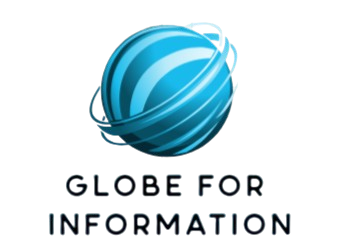Precision Medicine – Tailoring Testosterone Replacement for Individual Needs
Precision medicine has emerged as a groundbreaking approach to healthcare, aiming to tailor medical treatments to the individual characteristics of each patient. In the realm of endocrinology, particularly in the context of testosterone replacement therapy TRT, precision medicine holds great promise for optimizing outcomes and minimizing potential risks. Testosterone, a crucial hormone for various physiological functions, exhibits substantial individual variability in terms of production, metabolism, and responsiveness. Traditional approaches to TRT often follow a one-size-fits-all model, but precision medicine seeks to revolutionize this paradigm. The first step in tailoring testosterone replacement for individual needs involves comprehensive and personalized testing. Rather than relying solely on total testosterone levels, precision medicine considers a spectrum of factors, including free testosterone, bioavailable testosterone, and sex hormone-binding globulin SHBG. Additionally, genetic testing can unveil unique variations in androgen receptor sensitivity, enzymatic activity involved in testosterone metabolism, and other relevant genetic markers.
This wealth of information enables healthcare providers to gain a nuanced understanding of each patient’s endocrine profile, laying the foundation for a more targeted and effective TRT plan. Beyond laboratory results, precision medicine also takes into account lifestyle factors, comorbidities, and the patient’s specific symptoms and goals. For instance, a sedentary lifestyle, poor sleep quality, or chronic stress can impact testosterone levels and response to therapy. By integrating these variables into the treatment plan, healthcare providers can address underlying issues and enhance the overall success of TRT. Moreover, considering individual preferences and treatment adherence is crucial for long-term success. Some individuals may prefer the convenience of injectable testosterone, while others may opt for transdermal patches or gels, allowing for a more patient-centered approach. Precision medicine does not stop at the initial prescription; it involves continuous monitoring and adjustment based on the patient’s response. Regular follow-up assessments, including hormonal levels, side effects, and subjective well-being, provide valuable feedback to refine the treatment strategy over time.
This dynamic approach ensures that the testosterone replacement remains optimized for the individual’s evolving needs go to the website for more details, promoting both efficacy and safety. Importantly, precision medicine recognizes the potential risks associated with testosterone replacement, such as cardiovascular concerns and prostate health. By tailoring the therapy to the individual’s specific risk profile, providers can mitigate these concerns and make informed decisions about the duration and intensity of TRT. In conclusion, precision medicine represents a paradigm shift in the management of testosterone replacement therapy, moving away from a standardized approach to one that considers the intricate interplay of genetic, hormonal, lifestyle, and personal factors. This tailored approach holds great promise in optimizing outcomes, minimizing risks, and improving the overall well-being of individuals undergoing testosterone replacement. As we celebrate the one-year anniversary of precision medicine in this context, it is evident that the journey toward personalized endocrine care is just beginning, with exciting possibilities on the horizon for individualized healthcare.


 They found after some assessment that dental necessities were not being met and went to the decision to rent the guideline building and reconstruct the garage. Around 10,000 in gifts were used by the relationship for the difference in the past parking space into a dental clinic. A huge part of the used stuff for the working environment had quite recently been given to the clinic by dental experts for the past dental clinic. The delayed consequences of a gathering with all of the arranged patients sort out who are equipped for insignificant exertion care. The people who can bear the expense of private dental thought are not allowed to see the value in the low thought costs of the clinic to avoid contention with domain dental subject matter experts. Capabilities of the clinic’s organizations and the charge for the people who are qualified are picked by the clinic’s sliding scale. The justification behind the cost scale is the amount of family members and the compensation of the person.
They found after some assessment that dental necessities were not being met and went to the decision to rent the guideline building and reconstruct the garage. Around 10,000 in gifts were used by the relationship for the difference in the past parking space into a dental clinic. A huge part of the used stuff for the working environment had quite recently been given to the clinic by dental experts for the past dental clinic. The delayed consequences of a gathering with all of the arranged patients sort out who are equipped for insignificant exertion care. The people who can bear the expense of private dental thought are not allowed to see the value in the low thought costs of the clinic to avoid contention with domain dental subject matter experts. Capabilities of the clinic’s organizations and the charge for the people who are qualified are picked by the clinic’s sliding scale. The justification behind the cost scale is the amount of family members and the compensation of the person.
